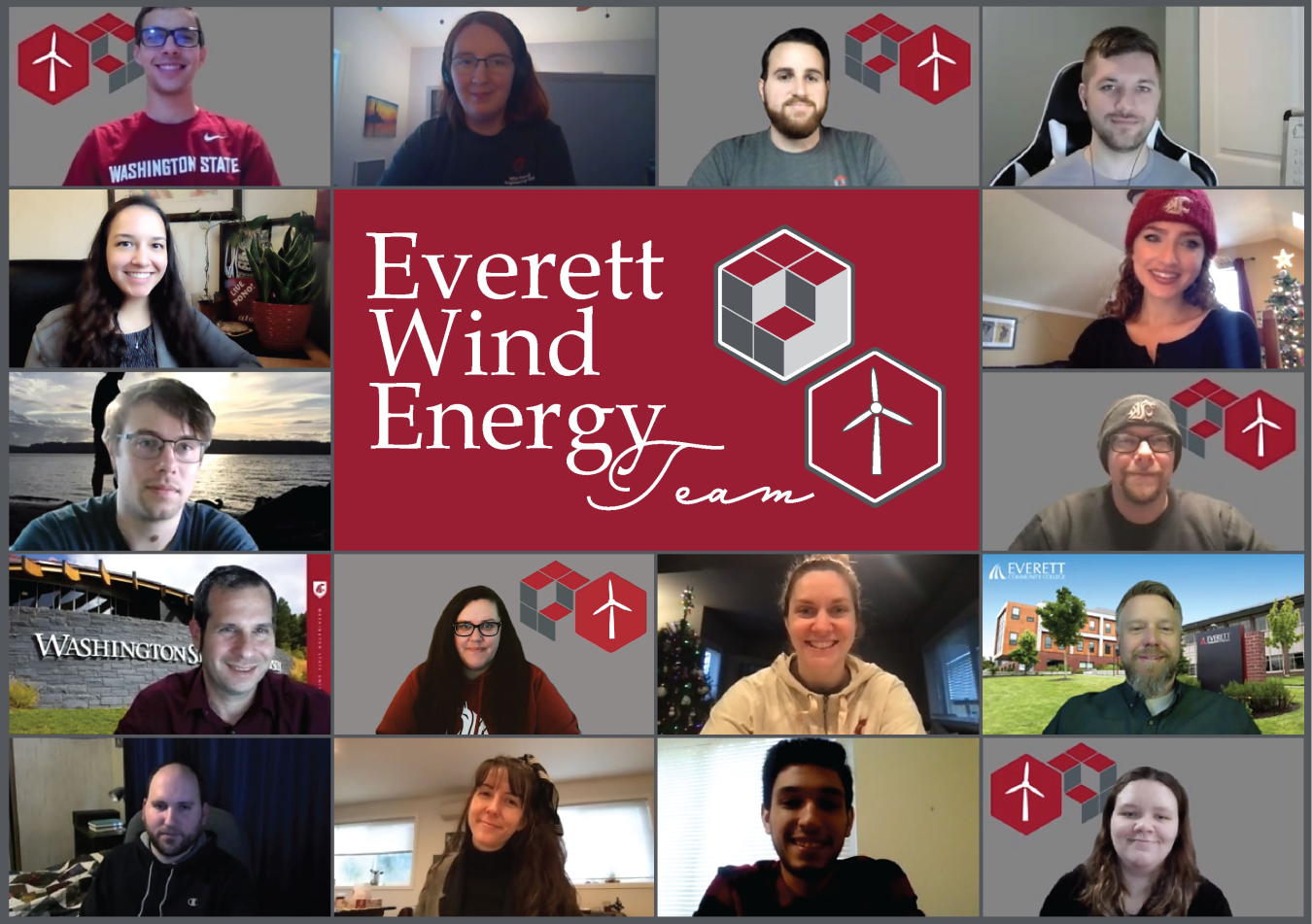Everett Wind Energy Team
Team Name:
Everett Wind Energy Team
Washington State University Everett with Everett Community College, Everett, Washington
Why this Competition?
Washington State University Everett and Everett Community College students have banded together to form the Everett Wind Energy Team (EWET). EWET students are eager to participate in the U.S. Department of Energy Collegiate Wind Competition to gain hands-on experience with advanced technology in the wind energy industry.
Game Plan
EWET is designing a variable-pitch vertical axis wind turbine. Unlike other variable-pitch turbines with blades that require electricity, EWET’s turbine uses a cam mechanism to determine the blades’ pitch. This cycloturbine design reduces blade stall and improves performance. The team is also researching how air flows around this type of turbine.

Everett Wind Energy Team
EWET is comprised of four subteams: mechanical, electrical, project development, and communications. The project development subteam plans to complete a full analysis and build a quality product. The communications subteam will focus on connecting the club with the community. EWET’s goal is to design and build a functioning turbine for the Washington State University Everett campus.
Time management is key for EWET’s success in this competition. The team plans to stay on top of deadlines, start early to complete tasks ahead of time, and communicate among teammates to ensure deadlines are met.
EWET now has a robust communications subteam to help bridge the gap between the engineering and the business side of this project. In the spring semester, the team plans to integrate educational materials with hands-on activities to distribute to more than 100 local high school students. EWET will also virtually host guest speakers to teach the team about what it is like to work in the energy industry.
Team Strengths
EWET comprises students from Washington State University and Everett Community College. Despite having different skill sets and backgrounds, EWET members have formed a tight-knit community that promotes a healthy flow of information.
EWET is one of the smallest teams competing this year and believes that small campus schools inspire better relationships among members, creating a more intimate team, which could lead to success in the competition.
Team Hurdles
Washington State University enacted strict COVID-19 prevention guidelines that limit in-person interactions for team members and potential recruits. EWET maintains social distancing by conducting all meetings virtually. This lack of natural interactions means less involvement from students outside the schools’ engineering clubs.
Additional hurdles for EWET include communication issues and scheduling conflicts because the team comprises students from different colleges.
Competition Objectives
Because the team attended past Collegiate Wind Competitions, EWET aims to use their experience to create not only a better-functioning turbine design, but also a more cohesive team. The team feels they did a great job last year of doing the research and building the turbine but hit a snag when writing it out and presenting it.
Follow Us
Hashtags: #EWET #WSUEverett #EvCC #GoCougs #EverettCC #EverCougs #Everett
Facebook: @WSUEverettEngineeringClub |@WSUEverett | @EverettCC
Instagram: @WSUEEC |@WSUEverett |@everettcommcollege|@EvCClife | @EvCCseaclub
LinkedIn: Washington State University Everett Engineering Club, Washington State University, Everett Community College
Twitter: @WindEverett |@WSUEverett | @EverettCC | @EvCClife
YouTube: @EverettWindEnergyTea
This content was submitted to the U.S. Department of Energy by the team.

